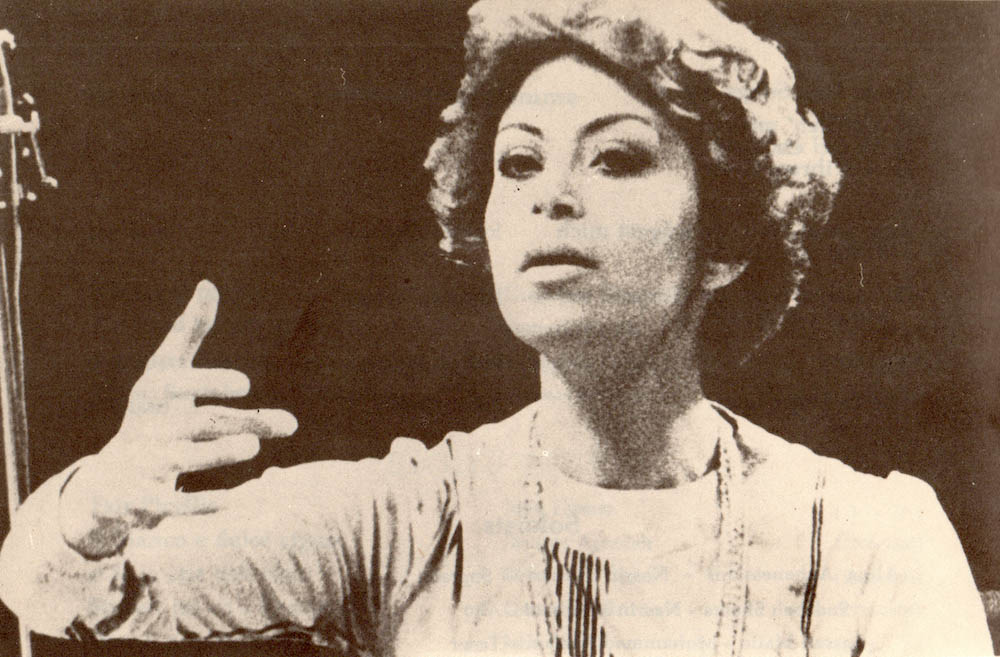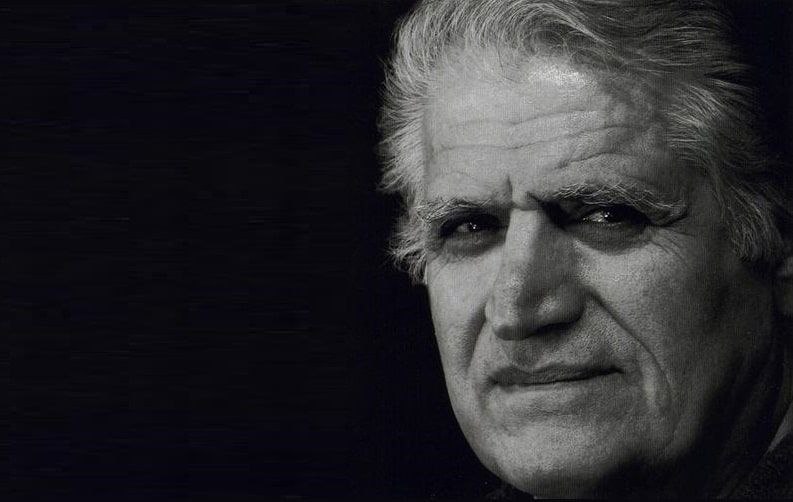
Golnoush Khaleghi, first Persian woman conductor and daughter of legendary composer Rouhollah Khaleghi, passed away on February 14. She was 80.
Golnoush Khaleghi was the conductor of the NIRT (National Iranian Radio & Television) Choir in the 1970s. Shortly after the 1979 Islamic Revolution Ms. Khaleghi moved to the United States and founded the Rouhollah Khaleghi Orchestra in Washington DC to preserve Persian music. BBC’s Pejman Akbarzadeh has reviewed her career.
The year 1974 was the beginning of Golnoush Khaleghi’s professional career. She was invited to Persia to establish the National Radio and Television’s choir, known as ‘Hamavazan’. This choral group performed various concerts focused on Western classical music.
“The Television at that time had a quite successful chamber orchestra which was formed some years earlier. They were going to expand the activities of this orchestra and have a professional choral group to collaborate with it. Therefore, when I suggested to establish a choral group, the Television warmly received the idea.” Golnoush Khaleghi said in a 2016 interview.
The choral group’s career expanded a lot but the victory of the Islamic Revolution halted its activities. The last work of this choir was the secretive recording of Azadi [Freedom] anthem by Golnoush Khaleghi with lyrics by Fereydoun Moshiri.
Golnoush Khaleghi in the same interview said: “One day that I was heading to the Television the chief sound engineer said to me ” I’ve heard that you have written a beautiful anthem!” The choir members had told him. He asked me “Are you not willing to record this work?” I replied: “I would love to record it but don’t know if I am allowed to record that.” He said: “No, they will not allow you to record this piece but we will do it secretly!” – The chief sound engineer was Yousef Shahab. He said “I will provide you a studio but if the Revolutionary Guard finds out about that, they will not allow you to record. So, you can perform just twice, and you must perform well during this session!” Choir members had already rehearsed so we performed twice with the orchestra and recorded the piece…”
Golnoush Khaleghi, less than a year after the 1979 revolution, moved to the United States. After various activities, in 1985 she established Rouhollah Khaleghi Orchestra in Washington DC and performed new arrangements of works by Persian music masters. The orchestra’s activities were stopped after some years due to financial difficulties.
In 1990, for the 25th anniversary of Rouhollah Khaleghi’s death, Golnoush travelled to Iran to conduct in few concerts. The then authorities did not allow her to conduct on stage due to being a woman. In her 2016 interview with Pejman Akbarzadeh, Khaleghi says: “Although I was going to cover my hair during the performance and wear Islamic dress, they did not allow me to conduct on the stage. Later when they tried to be kind, they told me “You can perform only for women!” – I said “I will never do that. If I perform a concert it should be free for all to come and listen. Why should it be just for women?!”
Golnoush Khaleghi later established Rouhollah Khaleghi Artistic Center in the United States to preserve her father’s legacy. Such efforts caused publications of Rouhollah Khaleghi’s work in Persia and the United States. But many of her own compositions have not been released yet.
Golnoush Khaleghi is survived by her husband, American organist Stephan Ackert, and two sons, Ramin (David) and Julian.
Source: BBC Persian








